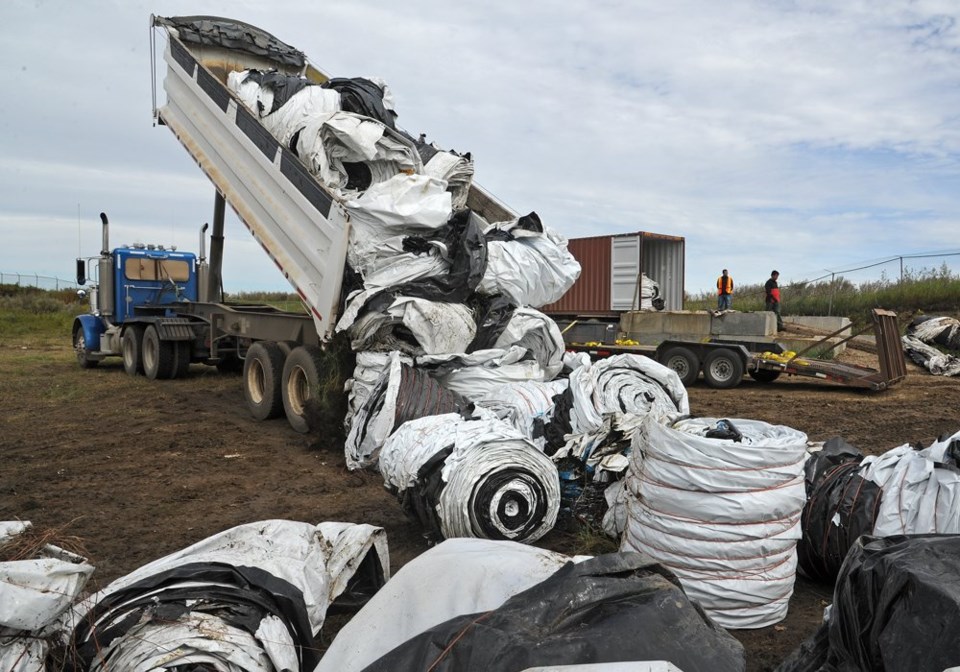WESTERN PRODUCER — Saskatchewan farmers are proving themselves to be keen on grain bag recyclers.
Even though they aren’t refunded the fees they pay when they buy plastic grain bags, most farmers are willing to support the grain bag recycling program.
“For a four-year-old program, that’s a really impressive collection rate,” said Kim Timmer, the director of stakeholder relations and policy for Cleanfarms, the agricultural recycling program.
“We’re making a lot of progress.”
Manitoba has joined the program and other provinces are considering it.
In 2020, about 60 percent of the plastic grain bags sold in Saskatchewan were returned for recycling, and a 2020-21 survey found that about 60 percent of farmers say they recycle their grain bags.
The steadiness of producer returns has allowed Cleanfarms to reduce the “environmental handling fee” from 25 cents per kilogram to 22.5 cents this year. The fee is paid when farmers buy bags.
Grain bags have become a popular harvest management device in recent years, but the 300-pound bags are single use and represent a lot of plastic waste. Recycling them reduces their environmental impact.
“It’s a really, really important tool, but managing that tool at the end of life is a challenge,” said Timmer.
The program picks up collected used bags and delivers them to recyclers. Two recyclers operate in Alberta, and there are also options in the United States. The plastic is turned into products like industrial-strength garbage bags.
With a good uptake in farmer returns, Saskatchewan has proven that farmers will support a program like this, Timmer said. Saskatchewan was the first jurisdiction to pass regulations to enable the program to operate, by charging the recycling fee on all bags sold. Manitoba joined the program in 2021.
Cleanfarms is also operating grain bag recycling pilot programs in other provinces in the hopes that support will spread to other jurisdictions.
Having a steady flow of grain bags to provide to recycling companies has helped the program reduce fees this year. In 2020, farmers returned about 2,500 tonnes of used grain bags.
“It’s given us the predictability we need,” said Timmer.

